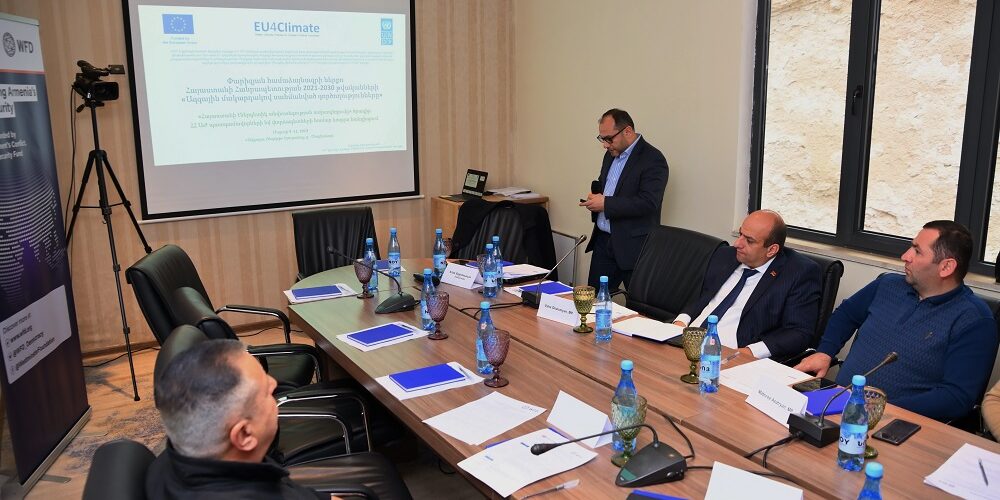On March 9-11, the EU4Climate project was represented by the Task Lead Artak Baghdasaryan in meeting held for the Members and experts of the RA National Assembly, organized by “Strengthening Armenia’s Energy Security” project that is financed by UK Government’s Conflict, Stability and Security Fund (CSSF).
The meeting aimed at discussing Armenia’s international obligations in the battle against climate change, in particular, the policy adopted in the energy sector, the reforms in the electricity market in Armenia, the importance of National Assembly’s oversight in these processes and public engagement, the legislative regulations in the field of renewable energy and climate change, and other related issues.
Mr. Artak Baghdasaryan delivered a presentation on “2021-2030 Nationally Determined Contributions of the Republic of Armenia under Paris Agreement.” In his speech, he referred to climate change phenomena in Armenia, the regulations related to climate issues internationally, including the commitments made under Paris Agreement, and in particular, the submission of Nationally Determined Contributions (NDCs) to the UNFCCC Secretariat (2015) and the justifications for its revision in 2021.
The updated 2021-2030 NDC sets an absolute mitigation target to reduce emissions by 40 by 2030 compared to the levels of 1990. To reach this target the NDC implementation plan envisages mitigation measures aimed at reducing GHG emissions in a number of sectors, including energy, transport, industrial processes and product use, waste management, agriculture and forestry. Mr. Baghdasaryan also spoke about the Long-term Low Emission Development strategy (until 2050), its objectives, the scope of actions and possible implementation scenarios.
Another important part of Mr. Baghdasaryan’s was dedicated to the presentation of the sources of climate financing, the opportunities of attracting funds, the issues related to integrating climate in sectoral expenditure policies, carbon pricing mechanisms, as well as the analysis, identification and classification of public climate expenditure.
At the closing session of the meeting, the results of the three-day discussions were summarized, the participants raised their concerns, and the opportunities of possible cooperation were outlined.



